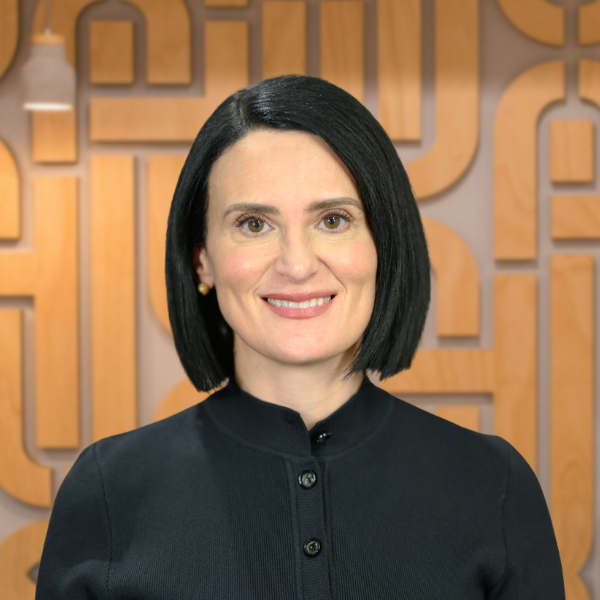How are advisers delivering advice in a process and format that matches the needs and preferences of their clients? In this excerpt from our paper ‘How advice entrepreneurs are delivering cost-effective advice to more Australians’, we look at adviser Brendon Vade’s approach to high-net-wealth clients and how it’s not a one-size-fits-all approach.
You can read the full paper here, which was developed with XY Adviser, the professional network for financial advisers.
Understanding your market and segmentation
The focus on advice practice financials has intensified in recent years as increasing compliance costs and continuing consumer concerns around advice fees have created a margin squeeze. Despite this, many innovative practices are thriving, largely because they’ve achieved a more sustainable match between their cost to serve and the way they price their offering.
One way for an advice business to price services appropriately, is to clearly understand the client segment they’re targeting. For new and existing advice businesses, tightly defining a target audience makes market research and testing more meaningful and enables offerings to be developed that are more tailored to the specific needs of those segments – and more suitably priced.
For an existing practice, understanding client economics at a segmented level also informs how the business can strike the optimal balance between resources, fees and services. In turn, this can help to prioritise and target innovation efforts.
Tailoring engagement activities to match the preferences of different segments can also help take client relationships to the next level.
Case study: the diverse needs and expectations of high-net-wealth (HNW) clients
The HNW segment is an increasingly attractive target for financial advisers, and one which can be both intellectually and financially rewarding. It’s also big, with Investment Trends estimating in 2021 that the HNW advice market comprises around 485,000 individuals who invest more than $2 trillion AUD.1
While the definition of HNW differs depending on who you talk to, one certainty is that this cohort is far from homogeneous. HNW clients vary greatly in terms of their behaviours, motivations and financial sophistication. In fact, the only universal truth for this segment may be that a one-size-fits-all-approach is doomed to fail.

As Brendon Vade, of HNW specialists Lorica Partners, (Lorica Partners PTY Limited ABN 26 082 828 948), puts it, “Relying on stereotypes about this group can be dangerous. The notion that they are all financially sophisticated is just plain wrong. So too is the assumption that they all want to be educated about detailed financial issues.”
One reason for the attractiveness of this segment is that they have a larger capacity to pay fees, although Vade notes that the type of arrangement that best suits their circumstances will vary, from a flat fee retainer, through to a percentage of assets or a mix of both.
Not all HNW clients are the same
Rather than adopting a one-size-fits-all approach, Lorica Partners effectively subsegments HNW clients according to their money beliefs and behaviours. Using a model developed by American private wealth guru Russ Alan Prince, Vade classifies each his clients into one of nine money personalities. The value of this approach is that it allows him to tailor his engagement and communication approach to suit their needs.
“The three types we see most of are the ‘family stewards,’ ‘phobics’ and the ‘independents’,” Vade says.
“The family stewards are primarily focused on making sure their wealth positively affects future generations. The ‘phobics’ are those who feel burdened by making financial decisions.
“With them, the threshold for trust is high and so it takes a while, but after you reach that threshold, they trust you implicitly, and it generally becomes a very deep relationship. The independents see money as an enabler, and they don’t want to feel boxed in by documented goals.”
Advisers as the trusted ‘financial facilitator’
According to Vade, HNW clients also vary greatly in their desire to be hands on or hands off. However, he notes that one characteristic most HNW clients seem to share is that once the adviser has gained the client’s trust, the client looks to them to be the financial facilitator, or project manager, at the centre of all finance-related matters. This involves working in partnership with the client’s lawyer, accountant, banker, mortgage broker and other specialists.
It’s for this reason that Vade believes advisers in this space need to be equipped to have very fluent conversations on matters such as estate planning and accounting, and even philanthropy.
“They don’t want you to just blindly outsource these areas, they expect you to play a role,” he says. “For example, we get quite involved with the estate planning discovery process and then we sit in on meetings between the client and lawyer.”
“Legacy is another issue that’s more important for these clients than others. Many of them, especially the older clients, are investing not for themselves, but for their children and future generations, which gives them a much longer investment horizon, and is why many of them have portfolios that would be considered too aggressive for everyday retiree clients.”
Find out more
Innovation isn’t new but the way advice entrepreneurs look at common challenges provides fresh perspectives on how they do business. By shifting their focus to the client and approaching key facets of advice in innovative ways, they are making their business more efficient while driving better client outcomes.
To read more, download our paper, ‘How advice entrepreneurs are delivering cost-effective advice to more Australians.’ or check out our podcast series.
1‘The rise of high-net-worth advice validators’, IFA, 12 April 2021.
DISCLAIMER – IMPORTANT INFORMATION
This series has been issued jointly by HUB24 Custodial Services Ltd (ABN 94 073 633 664, AFSL 239 122 (HUB24) and XY Adviser Pty Ltd (ACN 45 606 168 781) (XY Adviser) and is current at the date of issue. HUB24 is the operator of HUB24 Invest (an investor directed portfolio service), promoter and service provider of HUB24 Super which is a regulated superannuation fund. The trustee and issuer of interests in HUB24 Super is HTFS Nominees Pty Limited (ABN 78 000 880 553, AFSL 232500, RSE L0003216). XY Adviser operates a professional network for financial advisers.
The information in this document is intended to be general information only and not financial product advice. The views expressed in this document by persons who are not representatives of either HUB24 or XY Adviser are their own, and do not necessarily represent HUB24 of XY Adviser’s views.
Neither HUB24 nor XY Adviser have validated or verified the views expressed in this paper, make any representation as to the completeness or reliability of the material in this series, accept any liability for loss attributable to use of this paper, including liability for any statements which are incorrect or misleading. Readers should not rely on the information in this paper and should undertake their own investigations and use their own commercial judgment. This document must not be copied or reproduced without the prior written consent of HUB24. © HUB24




